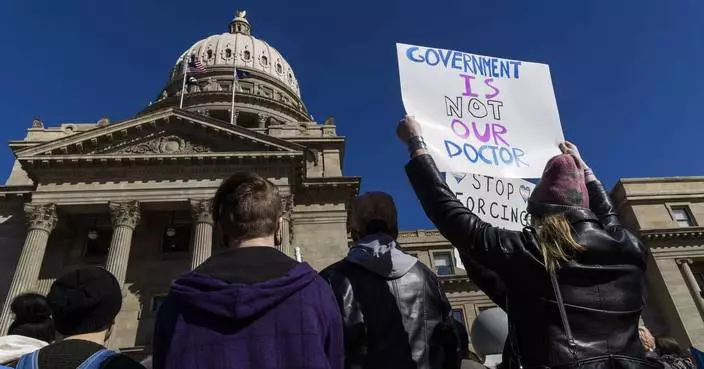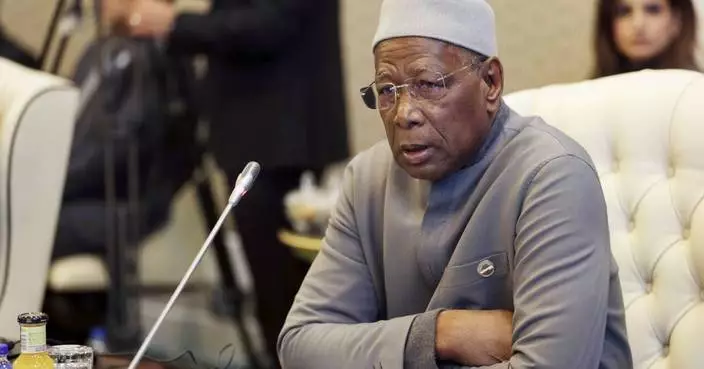Forces allied with the U.N.-supported government in Libya’s capital said Friday they have retaken another key western town from rivals behind a year-long offensive on Tripoli. The development is yet another illustration of how Turkey’s support for the Tripoli government has turned the tide of war in the oil-rich country.
According to Mohamed Gnono, the spokesman for the Tripoli-allied forces, the Turkey-backed units have entered the town of Tarhouna, 72 kilometers (45 miles) southeast of Tripoli.
Tarhouna served as a main stronghold for commander Khalifa Hifter's east-based forces in their campaign to capture Tripoli from the west-based Government of National Accord. Hifter, who leads the self-styled Libyan Arab Armed Forces, launched his offensive in April last year.
The retaking of Tarhouna followed other front-line successes of the militias allied with the U.N.-supported but weak Tripoli government. On Thursday, they said they regained control of all of Tripoli's entrance and exit points, and the day before, they said they took back the Tripoli airport.
Turkey has boosted its support for the Tripoli-allied militias in recent months, sending drones and other military hardware, along with thousands of Syrian mercenaries, many of them with links to militant groups. This has enabled the Tripoli forces to take back almost all the towns and territories around the Libyan capital that Hifter's side had taken previously.
However, Hifter’s military command has said it was “relocating” forces out of Tripoli in response to calls for the resumption of the U.N.-brokered peace talks but that the battle for the capital “is not over.”
Hifter’s forces are supported by France, Russia, Jordan, the United Arab Emirates and other key Arab countries. Along with Turkey, the government in Tripoli is backed by Italy and Qatar.
Libya has been in turmoil since 2011 when a civil war toppled long-time dictator Moammar Gadhafi, who was later killed. The country has since split between rival administrations in the east and the west, each backed by armed groups and foreign governments.
Amnesty International, meanwhile, accused both sides of having committed war crimes in the latest surge of fighting around Tripoli.
The London-based rights group said it obtained new evidence indicating “that war crimes and other violations may have been committed" since mid-April, “including, looting, indiscriminate attacks, and the planting of anti-personnel landmines in civilian buildings."
“Civilians in Libya are once again paying the price," said Amnesty's regional director, Diana Eltahawy, adding that all parties in the fighting are “showing utter disregard for the laws of war and lives of civilians.”
Amnesty cited eyewitnesses describing looting by armed groups of civilian houses and public buildings in an array of towns near Tripoli — Sabratha, Surman and al-Asabaa — after they had been retaken from Hifter’s forces earlier this year and in the case of al-Asabaa, earlier this month.
The group said Hifter’s fighters also committed “serious violations,” including indiscriminate attacks and planting bombs and booby traps in civilian areas before withdrawing.
BEIRUT (AP) — Leaked photographs of the son of Libya’s late dictator Moammar Gadhafi and the tiny underground cell where he has been held for years in Lebanon have raised concerns in the north African nation as Libyan authorities demand improvements.
The photos showed a room without natural light packed with Hannibal Gadhafi’s belongings, a bed and a tiny toilet. “I live in misery,” local Al-Jadeed TV quoted the detainee as saying in a Saturday evening broadcast, adding that he is a political prisoner in a case he has no information about.
Two Lebanese judicial officials confirmed to The Associated Press on Monday that the photographs aired by Al-Jadeed are of Gadhafi and the cell where he has been held for years at police headquarters in Beirut. Gadhafi appeared healthy, with a light beard and glasses.
A person who is usually in contact with Gadhafi, a Libyan citizen, said the photos were taken in recent days. All spoke on condition of anonymity because they were not authorized to speak to media outlets.
Gadhafi has been held in Lebanon since 2015 after he was kidnapped from neighboring Syria, where he had been living as a political refugee. He was abducted by Lebanese militants demanding information about the fate of prominent Lebanese Shiite cleric Moussa al-Sadr, who went missing during a trip to Libya in 1978.
The fate of al-Sadr has been a sore point in Lebanon. His family believes he may still be alive in a Libyan prison, though most Lebanese presume al-Sadr, who would be 95 now, is dead.
A Libyan delegation visited Beirut in January to reopen talks with Lebanese officials on the fate of al-Sadr and the release of Gadhafi. The talks were aimed at reactivating a dormant agreement between Lebanon and Libya, struck in 2014, for cooperation in the probe of al-Sadr. The delegation did not return to Beirut as planned.
The leaks by Al-Jadeed came after reports that Gadhafi was receiving special treatment at police headquarters and that he had cosmetic surgeries including hair transplants and teeth improvements. Al-Jadeed quoted him as saying: “Let them take my hair and teeth and give me my freedom.”
Gadhafi went on a hunger strike in June last year and was taken to a hospital after his health deteriorated.
Libya’s Justice Ministry in a statement Sunday said Gadhafi is being deprived of his rights guaranteed by law. It called on Lebanese authorities to improve his living conditions to one that “preserves his dignity," adding that Lebanese authorities should formally inform the ministry of the improvements. It also said Gadhafi deserves to be released.
After he was kidnapped in 2015, Lebanese authorities freed him but then detained him, accusing him of concealing information about al-Sadr’s disappearance.
Al-Sadr was the founder of the Amal group, a Shiite militia that fought in Lebanon’s 1975-90 civil war and later became a political party that is currently led by the country’s Parliament Speaker Nabih Berri.
Many of al-Sadr’s followers are convinced that Moammar Gadhafi ordered al-Sadr killed in a dispute over Libyan payments to Lebanese militias. Libya has maintained that the cleric, along with two traveling companions, left Tripoli in 1978 on a flight to Rome.
Human Rights Watch issued a statement in January calling for Gadhafi’s release. The rights group noted that Gadhafi was only 2 years old at the time of al-Sadr’s disappearance and held no senior position in Libya as an adult.

FILE - In this undated file photo made available Sept. 25, 2011, Hannibal Gadhafi, son of ousted Libyan leader Moammar Gadhafi, watches an elite military unit exercise in Zlitan, Libya. Leaked photographs of Hannibal Gadhafi and the tiny underground cell where he has been held for years in Lebanon have raised concerns. Libyan authorities are demanding that Lebanon improves living conditions for Gadhafi. (AP Photo/Abdel Magid al-Fergany, File)





